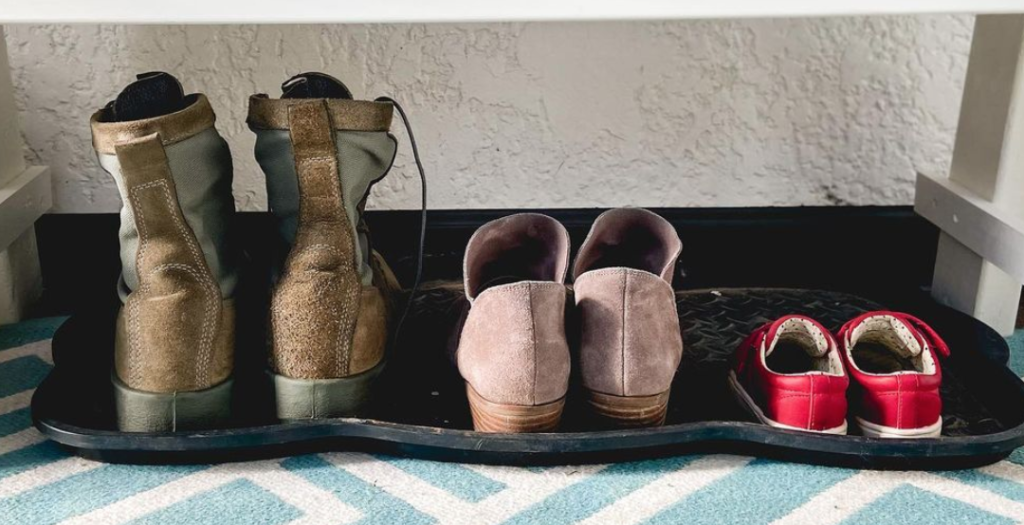
September is Suicide Prevention Month.
Trigger warning: In an effort to normalize conversations, I’m sharing my military spouse perspective on suicide and the fear that a mental health crisis may affect our husband’s career. While this account does not contain anything graphic, it does include examples of toxic thoughts.
I asked for help, even in the primary care clinic.
I sat on the crinkly white paper. I’d probably come in with a sore throat. Or maybe it was an earache. Whatever the cause, it was a minor malady. I’d already cried that morning. Somehow I found clothes, brushed my teeth, braided my hair. This appointment was the driving factor getting me out of the house.
The tech took my blood pressure and asked the basic mental health screening questions. A few months prior, I may not have been utterly transparent. Now, I didn’t care if this man thought I was crazy. There was no reason to deny I was in crisis. Some days I could barely function. I was desperate for someone to tell me how I could stop my brain from collapsing.
My answers indicated I needed more help than a round of antibiotics for a sinus infection.
The providers probably meant well, but their words were dangerous.
Here’s the part I hesitate most to share. This scenario played out twice, maybe more, in the months I spent waging war in mental health crisis. I don’t think these healthcare providers acted in malice. As active duty military members, I think they acted according to their mission mindset. Maybe they thought their words would be helpful—maybe they’d be the tough love I needed to “snap out of it.”
I don’t hold a grudge. However, I think recording these encounters is important. Military spouse perspective on suicide and depression needs to be normalized. There is no room for stigma when lives are on the line—and when it comes to depression, lives are on the line.
Once a professional implied I was a burden I started to consider how life would be better without me.
I heard the familiar double-knock that always accompanies a healthcare provider entering a room. We discussed my intake answers.
I remember one asking, “Have you considered how incredibly selfish this is? Your husband is living his career dreams. This is his time. Right now, he needs to focus. This could affect his career. Maybe you can wait and sort this out after he’s done. Just think about it.”
I remember another saying, “Just picture the years of military commitment like a clock counting down. Eventually, you could have a different lifestyle. Then maybe your depression will get better. Until then, try to see this from your husband’s point of view. This is a heavy burden to lay on him. This could affect his career. Can you understand that?”
No. I was never suicidal in that I had a plan. But words like this pushed me dangerously close. Hearing those words from professionals I came to for help was devastating. After these encounters I started considering how much better Derek’s life would be without me.
No, I never had a plan. I never attempted. But there was a season when I was convinced the world would be a better place if I could just be gone.
There’s hope and truth.
Friends, if those words were said to me–they’ve probably been said to someone else. If you’re thinking the people you love most would be better without you, I see you. I’ve been you. And it’s a lie. You’re valuable. It won’t always be this way. There is hope. There is healing. The process of finding that healing can be arduous–I’ve been there, I’m working to make it less so. But healing can be found. You are worth the fight.
Speak truth with grace, tough love doesn’t work.
September is Suicide Prevention Month. The military spouse perspective on suicide needs to change. We need to know it’s safe to share what’s going on. If lives are going to be saved, there is no room for tough love or tough-it-out attitudes.
If I know one thing for certain, it’s that we are fully capable of filling our own minds with negativity, self-doubt and lies. Use your words to speak truth, hope and love. Be honest, but gentle. Depression is complicated and can be life threatening. Let’s lift each other up and point each other to the Source of Hope. You just never know who may be on the brink.
Colossians 3:12-16 | Love each other.
So, as those who have been chosen of God, holy and beloved, put on a heart of compassion, kindness, humility, gentleness, and patience; bearing with one another, and forgiving each other, whoever has a complaint against anyone; just as the Lord forgave you, so must you do also. In addition to all these things put on love, which is the perfect bond of unity. Let the peace of Christ, to which you were indeed called in one body, rule in your hearts; and be thankful. Let the word of Christ richly dwell within you, with all wisdom teaching and admonishing one another with psalms, hymns, and spiritual songs, singing with thankfulness in your hearts to God.
One More Thing
For more encouragement, truth and transparent sharing that will normalize the mental health conversation among milspouses and Christians, join me on Instagram. I’d also love to connect with you through my monthly letter, full of good words and useful bits–see more here.



